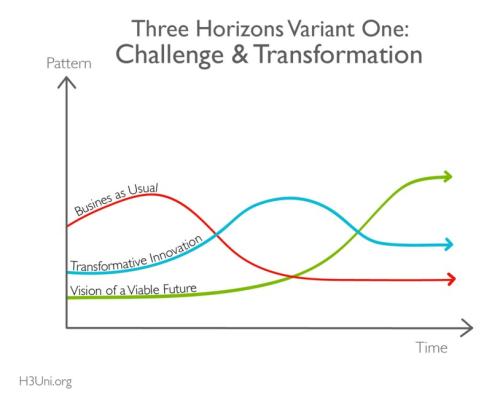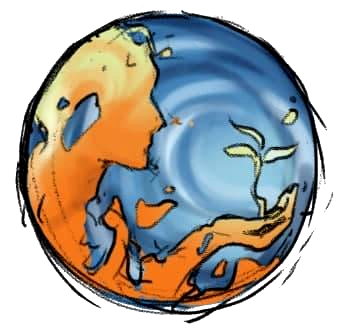Three horizons: a pathways practice for transformation

Three horizons: a pathways practice for transformation
A groundbreaking translation of the three horizons framework to and complex systems and regenerative development sense-making and scenario building.
Abstract: "Global environmental change requires responses that involve marked or qualitative changes in individuals, institutions, societies, and cultures. Yet, while there has been considerable effort to develop theory about such processes, there has been limited research on practices for facilitating transformative change. We present a novel pathways approach called Three Horizons that helps participants work with complex and intractable problems and uncertain futures. The approach is important for helping groups work with uncertainty while also generating agency in ways not always addressed by existing futures approaches. We explain how the approach uses a simple framework for structured and guided dialogue around different patterns of change by using examples. We then discuss some of the key characteristics of the practice that facilitators and participants have found to be useful. This includes (1) providing a simple structure for working with complexity, (2) helping develop future consciousness (an awareness of the future potential in the present moment), (3) helping distinguish between incremental and transformative change, (4) making explicit the processes of power and patterns of renewal, (5) enabling the exploration of how to manage transitions, and (6) providing a framework for dialogue among actors with different mindsets. The complementarity of Three Horizons to other approaches (e.g., scenario planning, dilemma thinking) is then discussed. Overall, we highlight that there is a need for much greater attention to researching practices of transformation in ways that bridge different kinds of knowledge, including episteme and phronesis. Achieving this will itself require changes to contemporary systems of knowledge production. The practice of Three Horizons could be a useful way to explore how such transformations in knowledge production and use could be achieved."
by Bill Sharpe 1, Anthony Hodgson 1,2, Graham Leicester 1, Andrew Lyon 1 and Ioan Fazey 2, Published in Ecology and Society, DOI: http://dx.doi.org/10.5751/ES-08388-210247
